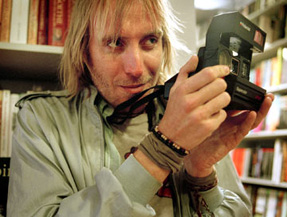Book vs. Movie: Enduring Love
By Kim Hollis
December 21, 2004
BoxOfficeProphets.com

And so, whenever the Tinsel Town hotshots decide that it's a great idea to turn the little-known Herman Melville classic Redburn into a theatrical event film, we'll be there. Whether the results are triumphant (see: The Lord of the Rings trilogy) or tragic (i.e. The Scarlett Letter), we'll take it upon ourselves to give you the verdict and spark the discussion.
Enduring Love
A story that provides vivid mental imagery, Ian McEwan's Enduring Love was an outstanding candidate for translation to the big screen. The events that unfold in the tale are set in motion from the outset, as a runaway balloon brings a set of men together who to try to rein it in with the hope of rescuing an endangered young boy. Tragedy ensues, but the story that follows is not at all expected or simple. Joe, the protagonist, finds himself being stalked by one of the men who was part of the balloon rescue with him; however, no one - not his girlfriend, nor the police, nor his friends - believe Joe when he tries to explain what is happening.
The Book
After encountering the very odd Jed Parry during the course of the aforementioned balloon rescue, Joe Rose suddenly finds himself as the unfortunate beneficiary of that man's obsession. Although Joe is trying to reconcile his emotions over the death of a man in the balloon accident along with his common-law wife, Clarissa, it is Parry's unwanted intrusion into his life that causes the more traumatic issues.
Things do degenerate very quickly, as Parry's fixation quickly sends Joe into mania. Fixated on trying both to convince others that he is being stalked and trying to uncover the motivation for the stalking, Joe presents an image of a man who is spouting crazy talk. Clarissa even notes that the writing in the notes Joe is receiving from Parry looks suspiciously like Joe's own.
Part of the reason the novel succeeds is that we are never quite certain as readers whether Jed Parry is a real stalker or simply a figment of Joe's imagination. Even better, the book is extremely intelligent, even making analogies to the relationship between the Romantic poets William Wordsworth and John Keats. By the time the book reaches its frenzied climax and the logic behind the book's title is revealed - an aha! moment if I've ever seen one - the reader is left breathless and with the mind spinning on the ramifications.
The Movie
Director Roger Michell, who has previously done such great stuff as Notting Hill and Changing Lanes, gives the film a dreamy quality and certainly leaves an impact with the opening balloon scene. Unfortunately, the screenplay from Joe Penhall shows a lack of understanding of what worked so well in the book, making so many changes that the film ends up being a pale shadow of author McEwan's master work.
Probably my biggest complaint about the film is the fact that it needlessly changes a number of small, particular elements. Taken singly, such modifications would seem insignificant; however, when all combined together, it makes a difference in the end product. Some simple examples include the fact that the film completely omits the fact that Clarissa (oddly called only Claire in the movie) is unable to bear children. It becomes a fairly important element in the book, but is essentially ignored on film. Additionally, an important piece of the book's plot is Joe's exclusion from the academic community - although he's a writer, his ideas are somewhat pooh-poohed by people who matter at the universities. In the film, the character is actually a professor.
Another important factor missing from the film is Joe's compulsive drive to understand why Jed is stalking him. While the film places much greater importance on Joe's feelings of guilt about the balloon accident and the question of who let go of the balloon first, the book is far more focused on what would cause a man like Jed to suddenly pursue an unusual object of desire.
The Verdict
The strangest decision made in the film, however, is to "Hollywood up" much of the action. While much of the stuff that takes place in the book is subtle and even elegant, director Michell goes for the "whoa" factor all too often, which is particularly puzzling given Enduring Love's indie nature. It would have been a far better movie, in my opinion, had he stuck closer to McEwan's brainy, original story.
As a result, I really can't recommend the film at all. It's certainly well-acted and has a lush, dreamy quality that will appeal to fans of independent film, but after reading the far superior book, it's a complete disappointment. In fact, Ian McEwan's Enduring Love is one of those rare books that I would give an A+. It's perfect for discerning readers who love smart, even clinical literature with a twist.